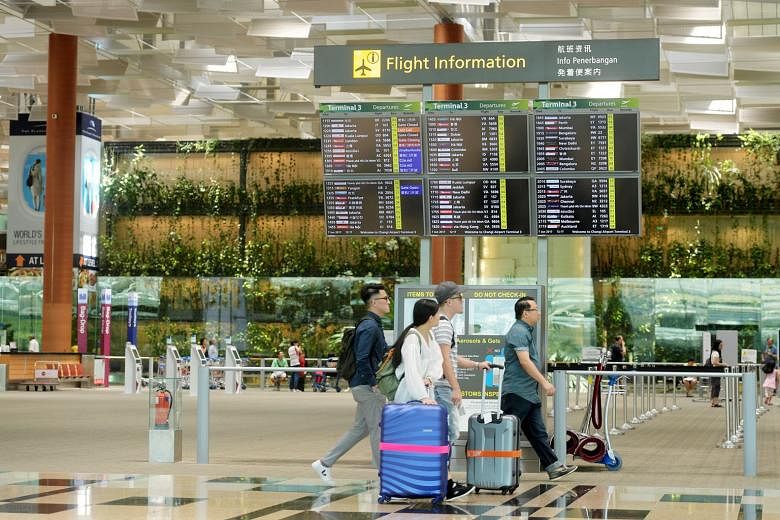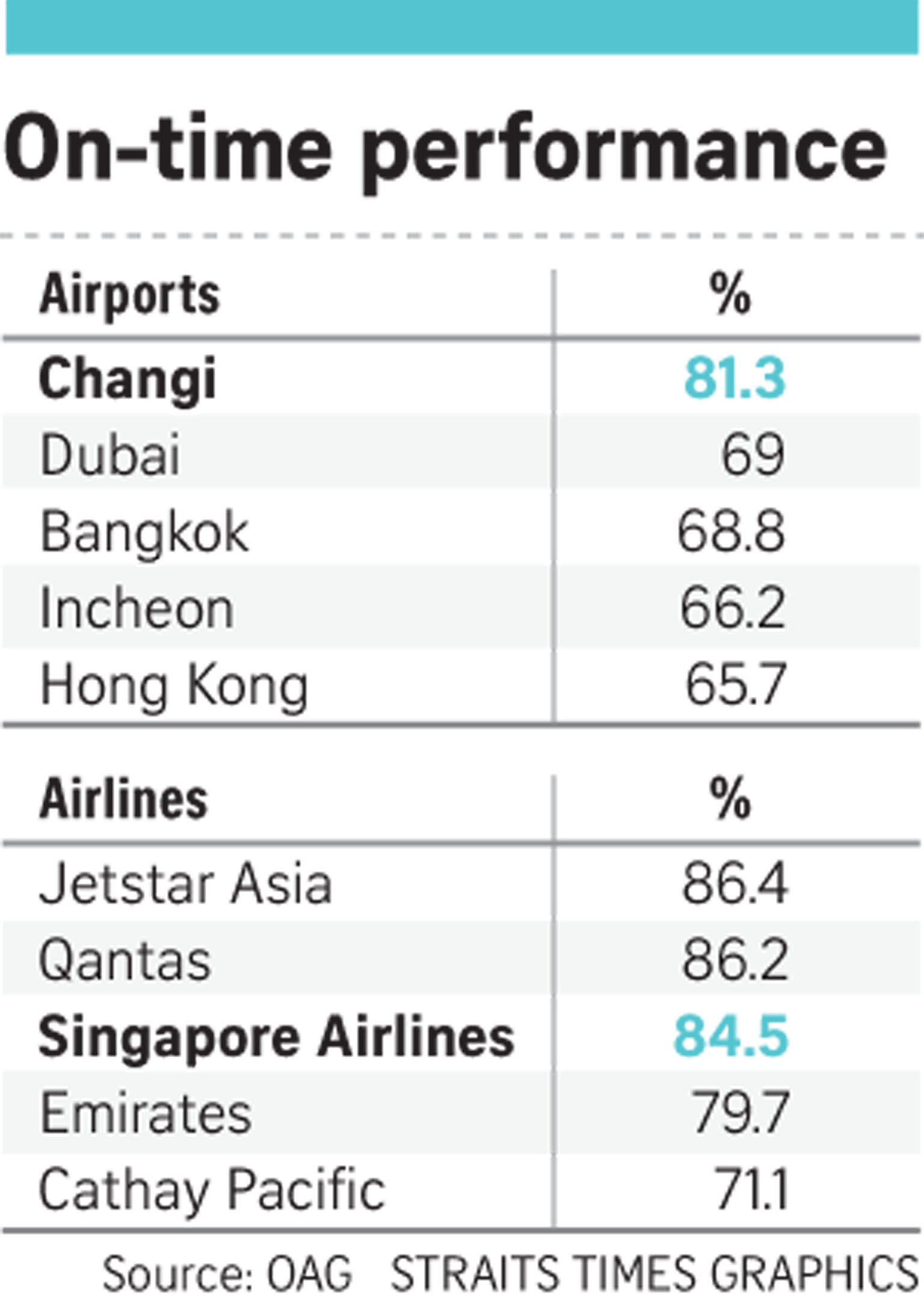Changi Airport and Singapore Airlines (SIA) experienced more flight delays this year than last year, though the airport did much better than many other major hubs, including those in Hong Kong and South Korea.
Of all the Singapore carriers, Jetstar Asia was the best performer, beating SIA.
The annual study, done by industry consultancy OAG, defines an on-time flight for an airline as one that arrives within 15 minutes of the scheduled time.
For airports, both departures and arrivals must meet the criterion.
Changi Airport's performance slipped from 83.5 per cent last year to 81.3 per cent this year, while SIA fell from 85.2 per cent to 84.5 per cent.
Meanwhile, Jetstar had 86.4 per cent of all flights arriving on time. Its performance was not captured in last year's survey.
Despite its poorer performance, Changi beat all other major Asian airports, including Hong Kong International Airport, Incheon Airport in South Korea and Dubai International Airport, which all reported fewer than 70 per cent of flights arriving and departing on time.
Mr Priveen Raj Naidu, chief executive of Reapra Aviation Partners, noted that an increasing number of flights at Changi is one of several key factors that have put pressure on the airport's infrastructure, including its two runways.
Even as expansion is under way, Changi has taken steps to boost efficiency, for example, with the introduction of a new system that facilitates exchange of information with airlines and ground handlers, so that flight timings can be predicted with greater accuracy.
Mr Ramanathan Mohandas, head of the diploma programme in aviation management at Republic Polytechnic, noted that apart from flight arrival and departure timings, other factors are also important when assessing airports and airlines.
These include how passengers are handled and waiting times at check-in, immigration and other touch points, he said.
SIA spokesman Nicholas Ionides said the airline takes punctuality very seriously, adding that "there are many factors that can go into on-time performance, among them weather factors, which can change from year to year".
"External factors aside, we track the punctuality of our flights closely and work with our ground handling agents, airports and regulatory authorities continually on improving punctuality for the benefit of our customers," he added.
For Jetstar Asia, the recognition is encouraging, said its chief executive officer Bara Pasupathi.
"The hallmarks for air travel are safety, punctuality and convenience... We are encouraged that our continuing investments in our technology, processes and people have made travel more reliable and seamless for our customers," he said.



